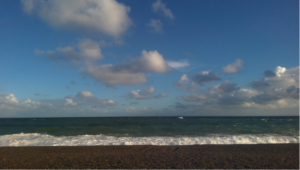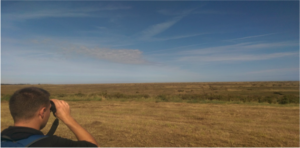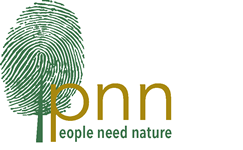Mindful Birdwatching
I asked on the Bird Therapy Twitter page what people thought connecting to nature really meant. The general consensus was that there are many ways to approach the statement, from ecological approaches to artistic approaches. A notion that was repeated a few times was to feel ‘part’ of nature as I have just written about; and a respondent said specifically that it was about ‘feeling an integral part of nature’. Another respondent stated that ‘connecting with nature is awakeness (sic), the mind is calm, at peace, then you are living in the moment, aware of everything’.
This statement strongly resonates with the concept of mindfulness. John Kabat-Zinn, whose work most modern mindful stress-reduction therapies are based, defines mindfulness as “Paying attention in a particular way; on purpose, in the present moment, and non-judgmentally.” When applied to birding practice there are evidently interesting links and benefits and I’ve long thought that when I’m out on a birding jaunt I am practising mindfulness. I undertook an 8 week mindfulness course as part of my ongoing therapy in 2016. This was provided by the Wellbeing Service and was bloody difficult to get a place on (I’d been waiting 6 months) as not only are they very popular but they are also only suitable for those in a ‘good place’ with their mental health and wellbeing.
To some degree I was accurate with my opinion of mindfulness and birding going ‘hand-in-hand’, however as I have learnt more about the art and practice of being mindful, the more I have learnt how it can be applied more powerfully to my own birding experiences. I started to visit my patch and practice breathing exercises and meditations involving sound. Not only did I feel even more strongly connected to my patch but I truly discovered that each sound is a passing moment and was able to really de-stress and relax. Obviously I have covered birdsong and its therapeutic benefits in the previous chapter so will not explore this further here.
Another approach to birding that I discovered can be extremely mindful is sea-watching. The majority of sea-watching is performed through a birding telescope, with periodic scanning of the sea through binoculars in-between. In chapter two I wrote about peripheral vision being cocooned in binocular barrels so that everything else is blocked out and this is even more apparent when sea-watching. The tumultuous sound of waves crashing into shingle coupled with the seemingly endless view of the churning sea makes for a very insular feeling when viewed through a ‘scope. You almost become at one with the situation and this feeling of connection is enhanced further when you are wrapped up warm against the cold and can feel the icy blast of the wind on your cheeks and the occasional splash of salt spray.

My first ‘proper’ sea-watch sticks with me. I spent the morning with a close friend, scanning the sea at Weybourne, Norfolk, in relatively choppy conditions. We were lucky enough to see an absolute myriad of species that day; with incredibly close views of Great and Arctic Skuas and Manx and Sooty Shearwaters. I fell in love with the sea that day and realised what an exhilarating experience I had been missing out on. The way that you become so attuned with your surroundings is stunning, as well as incredibly relaxing. A true multi-sensory experience, salt speckled lips, foamy white wave-crests and the sound of the seas power as it pounds the beach – beautiful.
Joe Harkness aka Bird Therapy

I have been writing about the therapeutic benefits of birdwatching for well over a year now. I post snippets and segments on my blog ‘Bird Therapy’ and these are all part of my wider writing which I hope to encapsulate into a book of the same name. Many people seem to share my view on birdwatching as a therapeutic measure and I have had lots of responses to the survey that can also be found on my blog. I also have a run of t-shirts available until the 21st of February with my logo on, profits of which will be going towards engaging challenging young people with nature, in particular birdwatching.
Blog; www.birdtherapy.wordpress.com
Twitter; @BirdTherapy
T-shirts; https://www.mercht.com/c/birdtherapy

Comments are closed.